![]()
Jesus and Nicodemus

"To be 'born again' is a catchword in much of Protestant Christianity, yet many Christians' use of this word does not capture the richness of what Jesus is saying in John 3. 'Born again' tends to be used as a label—for one's own Christian journey or that of someone else—but Jesus does not intend it as a label. Rather, it is a metaphor, a rich, multilayered expression that puts into words what is really beyond words. Nicodemus not only misunderstands the double meaning of anothen, but also misunderstands that Jesus is speaking metaphorically at all. Nicodemus tries to understand Jesus' words through the literal categories of his everyday experience, yet Jesus is inviting him (and the reader) to see life with God in categories that reshape the everyday.”
“Jesus and Nicodemus
John 3:1 Now there was a Pharisee named Nicodemus, a leader of the Jews. 2 He came to Jesus by night and said to him," Rabbi, we know that you are a teacher who has come from God; for no one can do these signs that you do apart from the presence of God.”3 Jesus answered him," Very truly, I tell you, no one can see the kingdom of God without being born from above.”4 Nicodemus said to him," How can anyone be born after having grown old? Can one enter a second time into The Mother's womb and be born?”5 Jesus answered," Very truly, I tell you, no one can enter the kingdom of God without being born of water and Spirit. 6 What is born of the flesh is flesh, and what is born of the Spirit is spirit. 7 Do not be astonished that I said to you, 'You must be born from above.' 8 The wind blows where it chooses, and you hear the sound of it, but you do not know where it comes from or where it goes. So it is with everyone who is born of the Spirit.”9 Nicodemus said to him," How can these things be?”10 Jesus answered him," Are you a teacher of Israel, and yet you do not understand these things?
11"Very truly, I tell you, we speak of what we know and testify to what we have seen; yet you do not receive our testimony. 12 If I have told you about earthly things and you do not believe, how can you believe if I tell you about heavenly things? 13 No one has ascended into heaven except the one who descended from heaven, the Son of Man. 14 And just as Moses lifted up the serpent in the wilderness, so must the Son of Man be lifted up, 15 that whoever believes in him may have eternal life.
16"For God so loved the world that he gave his only Son, so that everyone who believes in him may not perish but may have eternal life. 17 'Indeed, God did not send the Son into the world to condemn the world, but in order that the world might be saved through him. 18 Those who believe in him are not condemned; but those who do not believe are condemned already, because they have not believed in the name of the only Son of God. 19 And this is the judgement, that the light has come into the world, and people loved darkness rather than light because their deeds were evil. 20For all who do evil hate the light and do not come to the light, so that their deeds may not be exposed. 21 But those who do what is true come to the light, so that it may be clearly seen that their deeds have been done in God.'
Chapter and verse divisions were not included in the earliest manuscripts of the New Testament. They were added much later, and the beginning and ending of stories or units of thought do not always correspond neatly with the beginning and ending of what we now think of as chapters. The Nicodemus story is a case in point, because everything about the story—except the chapter division!—suggests that it continues Jesus' Jerusalem visit of chapter 2. As a Pharisee, Nicodemus was a teacher of the law and a member of the Jewish religious leadership that was questioning Jesus at the Jerusalem temple. Nicodemus's visit is motivated by what he has seen of Jesus' ministry (v.2). The richness of the conversation between Jesus and Nicodemus (and the later appearance of Nicodemus in John 7:45-52 and 19:38-42) shows that Jesus' works (his 'signs') and his words required all who met him to reevaluate where they looked for God's presence in the world. This story shows that Jesus' relationship with the religious leadership cannot be described by simple categories like 'for' or 'against.'
This story also continues many of the themes that were introduced in John 1:1-18. Nicodemus comes to Jesus 'by night,' but his visit nonetheless indicates an openness to the light of the world (1:4-5). Light symbolizes the presence of God; darkness and night, God's absence (see also 3:19-21; 8:12; 13:30). The theme of 'children of God' (1:12-13) surfaces again here, as the main theme in the conversation between Jesus and Nicodemus is new birth and new life (3:3-8, 11-15).
The conversation between Jesus and Nicodemus warrants careful reading because of its important themes, but also because of the way it presents these themes. This conversation if full of wordplay on Jesus' part. This is an intentional strategy by the evangelist that will be repeated throughout the Gospel (see especially 4:4-42; 11:11-16, 23-27). Any reader of John must recognize the centrality of such wordplay, as well as other uses of symbolic and figurative language, to the way the Gospel tells its story of Jesus. This Gospel is not designed for the reader to rush through. Instead it is designed so that readers will linger over the words of Jesus and will have to work to understand what Jesus is teaching. This is not a Gospel full of quick and easy answers, even though sayings from John are often used that way in many contemporary Christian settings. By lingering and puzzling over the words of Jesus, the Gospel reader is able to have a sense of hearing Jesus for himself or herself, just as characters in the Gospel stories do.
Nicodemus initiates the conversation by coming to Jesus, just as the disciples of John the Baptist did in chapter 1. And just like those disciples, Nicodemus is looking for something: he is trying to test how his previous understanding of God fits into what Jesus now does. Nicodemus begins by stating that he knows about God, but Jesus immediately turns that statement on its head. 'Very truly, I tell you' commonly introduces Jesus' teaching in John (see also 1:51; 3:5). The subject of Jesus' teaching, the 'kingdom of God, is a regular topic of Jesus' teaching in the Synoptics, but Jesus uses the phrase only here and in verse 5 in John. 'Kingdom of God,'' like 'hour,' is an eschatological category that points to a time when the world will be shaped by the will and hopes of God instead of human-defined categories. Jesus' teaching about how to enter the kingdom is difficult for Nicodemus to understand, because Nicodemus operates with his long-held categories of how God relates to the world and Jesus offers something new.
BORN FROM ABOVE OR BORN AGAIN
The heart of Jesus' teaching is in his announcement that in order to enter the kingdom of God, one must be 'born from above.' Verses 3-8 all center on the meaning of this announcement, and the key to understanding these verses is the word that the NRSV translates 'from above.' 'From above' translates the Greek word anothen. This Greek word can equally be translated in one of two ways. In addition to meaning 'from above,' it can also mean 'anew' or 'again.' ... The double meaning of anew/from above is the source of John's wordplay. Nicodemus assumes that Jesus is talking about physical rebirth ('born anew') and so protests the impossibility of what Jesus is saying (v. 4). Jesus is not speaking about a second birth in the way that Nicodemus understands it, however. He is talking metaphorically about a second birth that is also a rebirth 'from above,' from God who is the source of all life (1:12-13). As their conversation continues, Jesus tries to move Nicodemus out of his misunderstanding by redescribing the kind of birth he envisions with the phrase 'born of water and Spirit' (v. 5). This phrase, too, has double dimensions, because 'water' can evoke the waters of baptism. New birth in baptism is a birth in the 'spirit,' a new birth from God. Images of physical birth and the spiritual rebirth go hand in hand, because flesh and spirit belong together in the new birth Jesus envisions. One is not reborn to a new life apart from the physical body; one is reborn to a new life within the physical body. Jesus' offer of new life is not for an afterlife, but for this life. In an important way, what Jesus offers Nicodemus is what Jesus himself models in the incarnation: God-made-present in flesh.
To be 'born again' is a catchword in much of Protestant Christianity, yet many Christians' use of this word does not capture the richness of what Jesus is saying in John 3. 'Born again' tends to be used as a label—for one's own Christian journey or that of someone else—but Jesus does not intend it as a label. Rather, it is a metaphor, a rich, multilayered expression that puts into words what is really beyond words. Nicodemus not only misunderstands the double meaning of anothen, but also misunderstands that Jesus is speaking metaphorically at all. Nicodemus tries to understand Jesus' words through the literal categories of his everyday experience, yet Jesus is inviting him (and the reader) to see life with God in categories that reshape the everyday. To be born again is what makes it possible to see the kingdom of God and to begin to reframe our understandings of God. It is the beginning point, not the endpoint, of growth with God.”
John, O'Day, Gail R. and Hylen, Susan E.
Westminister John Knox Press (Apr 15 2006) pp. 40-3
Apokalypsis: The fulfillment of eschatological instruction by the Paraclete in the Age to Come promised by Jesus at the Last Supper
An apocalypse (Greek: apokalypsis meaning “an uncovering”) is in religious contexts knowledge or revelation, a disclosure of something hidden, “a vision of heavenly secrets that can make sense of earthly realities.” (Ehrman 2014, 59)
“An apocalypse (Ancient Greek: apokalypsis ... literally meaning "an uncovering") is a disclosure or revelation of great knowledge. In religious and occult concepts, an apocalypse usually discloses something very important that was hidden or provides what Bart Ehrman has termed, "A vision of heavenly secrets that can make sense of earthly realities". Historically, the term has a heavy religious connotation as commonly seen in the prophetic revelations of eschatology obtained through dreams or spiritual visions.” Wikipedia 2021-01-09

Total number of recorded talks 3058: Public Programs 1178, Pujas 651, and other (private conversations) 1249
“The Paraclete will come (15:26; 16:7, 8, 13) as Jesus has come into the world (5:43; 16:28; 18:37)... The Paraclete will take the things of Christ (the things that are mine, ek tou emou) and declare them (16:14-15). Bishop Fison describes the humility of the Spirit, 'The true Holy Spirit of God does not advertise Herself: She effaces Herself and advertises Jesus.' ...
It is by the outgoing activity of the Spirit that the divine life communicates itself in and to the creation. The Spirit is God-in-relations. The Paraclete is the divine self-expression which will be and abide with you, and be in you (14:16-17). The Spirit's work is described in terms of utterance: teach you, didasko (14:26), remind you, hypomimnesko (14:26), testify, martyro (15:26), prove wrong, elencho (16:8), guide into truth, hodego (16:13), speak, laleo (16:13, twice), declare, anangello (16:13, 14, 15). The johannine terms describe verbal actions which intend a response in others who will receive (lambano), see (theoreo), or know (ginosko) the Spirit. Such speech-terms link the Spirit with the divine Word. The Spirit's initiatives imply God's personal engagement with humanity. The Spirit comes to be with others; the teaching Spirit implies a community of learners; forgetful persons need a prompter to remind them; one testifies expecting heed to be paid; one speaks and declares in order to be heard. The articulate Spirit is the correlative of the listening, Spirit-informed community.
The final Paraclete passage closes with a threefold repetition of the verb she will declare (anangello), 16:13-15. The Spirit will declare the things that are to come (v.13), and she will declare what is Christ's (vv. 14, 15). The things of Christ are a message that must be heralded...
The intention of the Spirit of truth is the restoration of an alienated, deceived humanity... The teaching role of the Paraclete tends to be remembered as a major emphasis of the Farewell Discourses, yet only 14:26 says She will teach you all things. (Teaching is, however, implied when 16:13-15 says that the Spirit will guide you into all truth, and will speak and declare.) Franz Mussner remarks that the word used in 14:26, didaskein, "means literally 'teach, instruct,' but in John it nearly always means to reveal.” (Stevick 2011, 292-7)
The Holy Spirit as feminine: Early Christian testimonies and their interpretation,
Johannes van Oort, Radboud University, Nijmegen, The Netherlands
Department of Church History and Church Polity, Faculty of Theology, University of Pretoria, South Africa
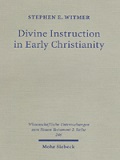
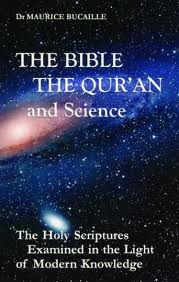
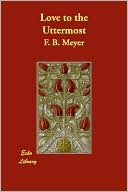
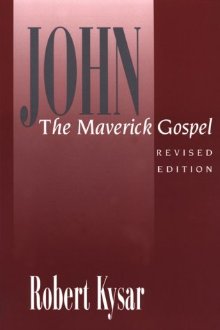
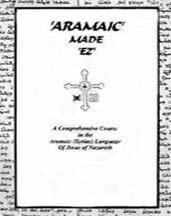

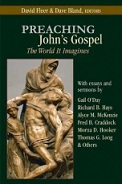
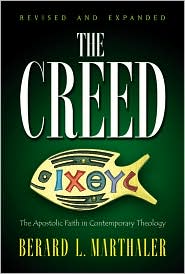
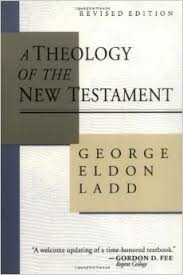
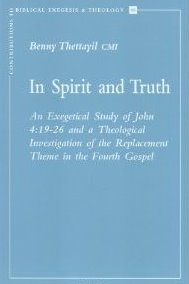

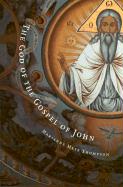
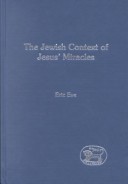
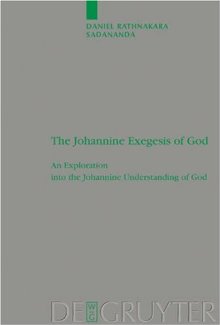

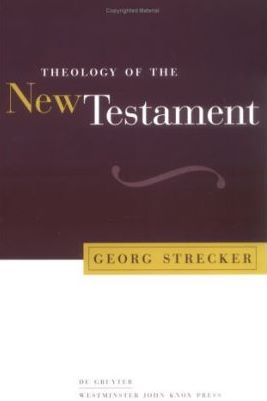

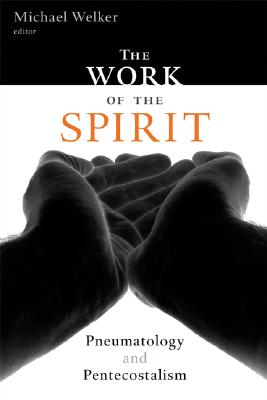
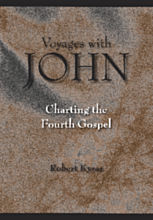
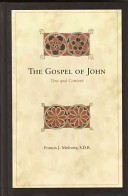
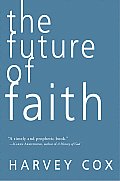
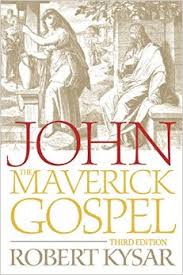
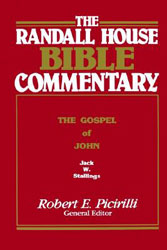
 “The teaching of the Paraclete, as the continuation of Jesus' teaching, must also be understood as the fulfillment of the promise of eschatological divine instruction.”
“The teaching of the Paraclete, as the continuation of Jesus' teaching, must also be understood as the fulfillment of the promise of eschatological divine instruction.”Stephen E. Witmer, Divine instruction in Early Christianity
“Jesus therefore predicts that God will later send a human being to Earth to take up the role defined by John .i.e. to be a prophet who hears God's words and repeats his message to man.”
M. Bucaille, The Bible, the Qur'n, and Science
“And when Jesus foreannounced another Comforter, He must have intended a Person as distinct and helpful as He had been.”
F. B. Meyer, Love to the Utmost
“The Paraclete has a twofold function: to communicate Christ to believers and, to put the world on trial.”
Robert Kysar, John The Meverick Gospel
“But She—the Spirit, the Paraclete...—will teach you everything.”
Danny Mahar, Aramaic Made EZ)
“Grammatical nonsense but evidence of the theological desire to defeminize the Divine.”
Lucy Reid, She Changes Everything
“The functions of the Paraclete spelled out in verses 13-15... are all acts of open and bold speaking in the highest degree.”
David Fleer, Preaching John's Gospel
“The reaction of the world to the Paraclete will be much the same as the world's reaction was to Jesus.”
Berard L. Marthaler, The Creed: The Apostolic Faith in Contemporary Theology
Bultmann calls the “coming of the Redeemer an 'eschatological event,' 'the turning-point of the ages.”
G. Ladd, A Theology of the New Testament
“The Paraclete equated with the Holy Spirit, is the only mediator of the word of the exalted Christ.”
Benny Thettayil, In Spirit and Truth
“The divine Paraclete, and no lessor agency, must show the world how wrong it was about him who was in the right.”
Daniel B. Stevick , Jesus and His Own: A Commentary on John 13-17
Stephen Smalley asserts that “The Spirit-Paraclete ... in John's Gospel is understood as personal, indeed, as a person.”
Marianne Thompson, The God of the Gospel of John
“The Messiah will come and the great age of salvation will dawn (for the pious).”
Eric Eve, The Jewish context of Jesus' Miracles
“The remembrance is to relive and re-enact the Christ event, to bring about new eschatological decision in time and space.”
Daniel Rathnakara Sadananda, The Johannine Exegesis of God
“The Spirit acts in such an international situation as the revealer of 'judgment' on the powers that rule the world.”
Michael Welker, God the Spirit
The Paraclete's “Appearance means that sin, righteousness, and judgment will be revealed.”
Georg Strecker, Theology of the New Testament
“While the Spirit-Paraclete is the true broker, the brokers they rely on are impostors.”
T. G. Brown, Spirit in the writings of John
“The pneumatological activity ... of the Paraclete ... may most helpfully be considered in terms of the salvific working of the hidden Spirit.”
Michael Welker, The work of the Spirit
“The pneuma is the peculiar power by which the word becomes the words of eternal life.”
Robert Kysar, Voyages with John
“The gift of peace, therefore, is intimately associated with the gift of the Spirit-Paraclete.”
Francis J. Moloney, The Gospel of John
“This utopian hope, even when modestly expressed, links Jesus and the prophets to a much wider history of human longing.”
Harvey Cox, The Future of Faith
“Because of the presence of the Paraclete in the life of the believer, the blessings of the end-times—the eschaton—are already present.”
Robert Kysar, John
“They are going, by the Holy Spirit's power, to be part of the greatest miracle of all, bringing men to salvation.”
R. Picirilli, The Randall House Bible Commentary
“The Kingdom of God stands as a comprehensive term for all that the messianic salvation included... is something to be sought here and now (Mt. 6:33) and to be received as children receive a gift (Mk. 10:15 = Lk. 18:16-17).”
G. Ladd, A Theology of the New Testament
Disclaimer: Our material may be copied, printed and distributed by referring to this site. This site also contains copyrighted material the use of which has not always been specifically authorized by the copyright owner. We are making such material available to our readers under the education and research provisions of "fair use" in an effort to advance freedom of inquiry for a better understanding of religious, spiritual and inter-faith issues. The material on this site is distributed without profit. If you wish to use copyrighted material for purposes other than “fair use” you must request permission from the copyright owner.